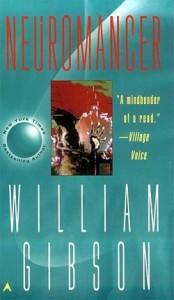For this week’s Flashforward Friday post, I’m happy to have science-fiction author, G. S. Jennsen, here again for a guest post on Unknowable Innovations.
As I understand it, Flashforward Friday is about looking at recent technological advances or discoveries and considering how they will impact the writing of science fiction. It’s a relevant question, as many people say science fiction, no matter how far into the future it looks, is always about the time in which it is written. But the aspect of this topic that has always bothered me is all the things we’ll never see coming.
Current events in science and space are always catching my attention. I see a report about a new ‘super-Earth’ exoplanet being detected and I want to write a story about it. I saw this article speculating the entire Milky Way might be a huge, navigable wormhole, and I really wanted to write a story about it. But these are today’s stories—if I’m writing about tomorrow, shouldn’t I care about tomorrow’s stories? Except it’s impossible for us to know what tomorrow’s stories will be.
My Aurora Rising trilogy is set 300 years in the future. There is FTL travel, cloning, pervasive human cybernetics, and instantaneous quantum communications across the galaxy. But what keeps me up at night is the technological advance which in retrospect will be blindingly obvious but which I can’t even conceive of, and the absence of which will someday make my fiction seem quaint and dated.
 The history of science fiction tells me this is exactly what will happen. William Gibson’s 1984 novel Neuromancer envisioned the internet, personal hard drives and artificial intelligence, but it failed to predict any kind of cell phone technology, less than a decade before cell phones entered the consumer market. In 1964 Isaac Asimov, a brilliant and visionary thinker if there ever was one, shared his predictions for 50 years in the future. While some were in the ballpark, he completely missed not only smartphones but the internet itself—arguably the two most important technologies existing in the world of 2014.
The history of science fiction tells me this is exactly what will happen. William Gibson’s 1984 novel Neuromancer envisioned the internet, personal hard drives and artificial intelligence, but it failed to predict any kind of cell phone technology, less than a decade before cell phones entered the consumer market. In 1964 Isaac Asimov, a brilliant and visionary thinker if there ever was one, shared his predictions for 50 years in the future. While some were in the ballpark, he completely missed not only smartphones but the internet itself—arguably the two most important technologies existing in the world of 2014.
In Star Wars, the Millennium Falcon can travel faster than light through hyperspace, but it takes an archaic ‘navicomputer’ multiple minutes to compute the coordinates every time it makes a jump. Virtually all science fiction from mid-century through the 1990s features massive, hulking computers. In retrospect the concept of radical miniaturization seems obvious to us, but it wasn’t to people living at the time. Throughout the 1960s, ’70s and ’80s, computers were a part of life, and they were big—not merely then, but in the fictional future.
G. S. Jennsen’s latest work is Restless: An Aurora Rising Short Story–
Space is vast and untamed, and it holds many secrets. Now two individuals from opposite ends of settled space are on a collision course with the darkest of those secrets, even as the world threatens to explode around them.
…or they will be, in about 8 years. Restless is a short story prequel to Starshine, Book One of the Aurora Rising trilogy.
Before Alex Solovy was a successful interstellar scout, she was building starships and planning for the day when she would fly one she called her own. Before Caleb Marano was wiping out the terrorist group who murdered his mentor, he was…wiping out terrorist groups who murdered shopkeepers and threatened his friends.
Catch a glimpse of Aurora Rising’s heroes while they were still becoming the individuals they will need to be in order to face the galactic threat which, for now, waits silently in the void.
Click here to read other Flashforward Friday posts by other authors including Jean Walker, GG Silverman, and more.

